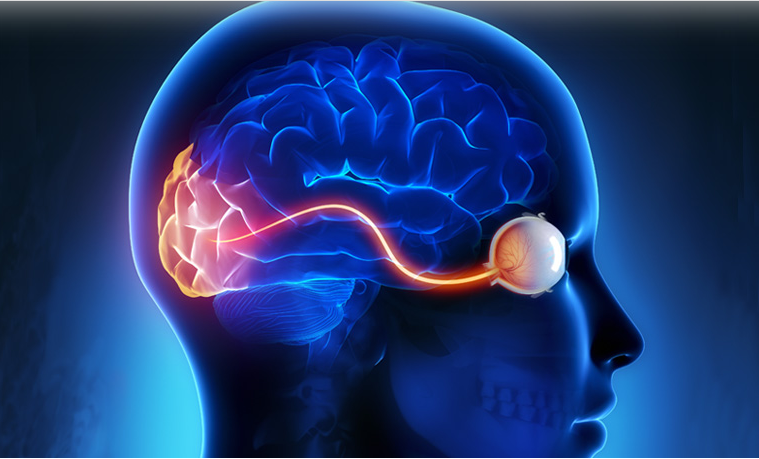Our eye captures the visuals and transmits to the brain which forms the picture to be resolved as images. This happens through the optic nerve which transmits the visual stimuli.
A dysfunction of this entity might cause visual impairment and sometimes lead to irreparable damage to the eye. Such damages of the neurological problems related to the eye comes under the study of Neuro Ophthalmology.
Few of the most common symptoms of the Optic Nerve Dysfunction are,
- Sudden reduction in Visual Activity
- Double Vision
- Headaches
- Less Reactive Pupil
- Impairment of Color Vision where it becomes difficult to identify Red and Green Colors
- Photophobia – Difficulty in seeing lights
- Visual Field Defects

In case, any of these symptoms are noticed, it is advisable to immediately see an Ophthalmologist. If these concerns are not treated on time, this could result in Optic Nerve Atrophy which means The Death of the Optic Nerve
Few of the conditions pertaining to Neuro Ophthalmology are
Optic Neuritis
This condition involves inflammation of the optic nerve. This inflammation might occur due to various reasons – starting from an infection to an autoimmune disorder.
Papilledema
Optic Disc is the circular area where the optic nerve connects to the retina at the back of the eye. In Papilledema, Optic Disc swells up due to an excessive pressure from inside the skull.
Nutritional Optic Neuropathy
Usually, the damage in the optic nerve is caused in this instance, due to toxic substances found in Tobacco and Alcohol. Such conditions occur, due to lack of nutrients, deficiency of Vitamin B-complex and folic acid.
Diabetic Neuropathy
People who have diabetes are at a higher risk of Neuro Ophthalmologic Conditions. In Diabetic Neuropathy, Optic nerve is damaged due to excessive blood sugar or diabetes. With the progression of the disease, the blood supply to retina is cut off and this leads to vision loss.
Damage to Optic nerve can be directly picked up in the eye examination itself. A Brain CT scan or an MRI is done to assess if there is any damage done to the brain as well. In Some of the conditions, treatment with the oral medications and/or injectables is possible, while other conditions might even need a surgery as well.

